Network Members
Educational Innovation
Network Key Community
Members
Viladecans’ 360º approach to education underpins the idea of an Educational Innovation Network that involves different public and private representatives in a city-wide project. Anybody educates, anywhere at any time. It is understood that learning happens within and out of schools’ walls, and also physically and, increasingly, from and with virtual digital tools.
This education conception makes everybody co-responsible in the teaching-learning process. Bridges between potentially education agents, formal and non-formal, promote collaborative efforts and have a multiplying impact.
With this in view, all ON BOARD partners engaged members from different stakeholders’ groups to participate in the international gatherings, their local planning meetings and in pilot innovative projects.
Teachers and headmasters were obviously the first ones, but other followed: local businesses and the university, entities of all kinds, families, the students themselves… they turned to have a high potential and interest in connecting with each other to improve students’ interest, skills and capacities from a “real world” standpoint and beyond the formal curricula.
Students' empowerment
and higher motivation
At the basis of the students’ education success is motivation. All ON BOARD partners know that the student’s direct involvement in education decisions and projects spurs their interest and motivation. Before attending the meeting in Poznan, all cities surveyed students from the schools participating in the ON BOARD project to understand what exactly motivates them and what their expectations are.
Interestingly, their ideas confirmed the conclusions already heard form experts. Students’ feedback showed that taking advantage of their digital, technological and social media skills contribute to heighten their interest. The use of image (videos, tick-tock…), arts (music, dance, theatre…) and other formats of learning and communicating clearly connect with their way of learning.
Exchanging with other schools in the city or elsewhere, was mentioned to contribute to make education more attractive. Finally, taking responsibility in organisations that address their own passions, for example music, arts, social and environmental concerns, is a good way to raise interest. In sum, overcoming the traditional styles of learning strictly form a book and participating in projects that connect them with real life.
As part of their Plan to improve their own Good Practice, the Lead Partner city of Viladecans wants to make students’ voices heard and empower young people so they can participate as members of the Educational Innovation Network.
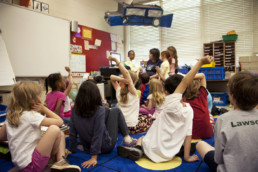
Voices
NMS_51
NMS_52
NMS_53
NMS_54
NMS_55
NMS_56
NMS_57
NMS_58
NMS_59
Network Members
Educational Innovation
Network Key Community
Members
Viladecans’ 360º approach to education underpins the idea of an Educational Innovation Network that involves different public and private representatives in a city-wide project. Anybody educates, anywhere at any time. It is understood that learning happens within and out of schools’ walls, and also physically and, increasingly, from and with virtual digital tools.
This education conception makes everybody co-responsible in the teaching-learning process. Bridges between potentially education agents, formal and non-formal, promote collaborative efforts and have a multiplying impact.
With this in view, all ON BOARD partners engaged members from different stakeholders’ groups to participate in the international gatherings, their local planning meetings and in pilot innovative projects.
Teachers and headmasters were obviously the first ones, but other followed: local businesses and the university, entities of all kinds, families, the students themselves… they turned to have a high potential and interest in connecting with each other to improve students’ interest, skills and capacities from a “real world” standpoint and beyond the formal curricula.
Families engagement
for educational
success
In Viladecans’ schools, parents of the students participate in aspects and decisions of daily school life, for example, the catering service for the school canteen or the after-school activities that take place in the centre, such as sports and leisure. Teachers are used to organise celebrations together with parents and students. This has proved to create collaborative bonds that contribute to strengthening and prestige the centre and its teachers, and to develop a sense of pride and belonging.
Not all ON BOARD cities have the same integration and parental involvement in school life. For some ON BOARD cities teacher-family dialogue is very limited. Most ON BOARD Cities have Families’ Associations or Parents’ Councils, with a diverse capacity of decision and involvement in each city.
In the meeting the Poznan held, families’ representatives were invited to contribute their own insights on the interest and capacity to collaborate with the school.
Some highlights on the parent’s insights and further debate concluded that families see a special interest in expanding their role of supporting their own kids with homework and duties and bridge between the school and their work and life out of the school. They see themselves as active members offering their own knowledge, skills and contacts to enrich and support education and the community.
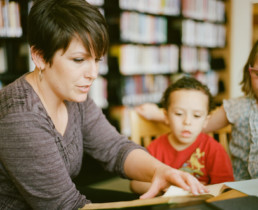
Voices
NM_51
NM_52
NM_53
NM_54
NM_55
Network Members
Educational Innovation
Network Key Community
Members
Viladecans’ 360º approach to education underpins the idea of an Educational Innovation Network that involves different public and private representatives in a city-wide project. Anybody educates, anywhere at any time. It is understood that learning happens within and out of schools’ walls, and also physically and, increasingly, from and with virtual digital tools.
This education conception makes everybody co-responsible in the teaching-learning process. Bridges between potentially education agents, formal and non-formal, promote collaborative efforts and have a multiplying impact.
With this in view, all ON BOARD partners engaged members from different stakeholders’ groups to participate in the international gatherings, their local planning meetings and in pilot innovative projects.
Teachers and headmasters were obviously the first ones, but other followed: local businesses and the university, entities of all kinds, families, the students themselves… they turned to have a high potential and interest in connecting with each other to improve students’ interest, skills and capacities from a “real world” standpoint and beyond the formal curricula.
Universities getting
involved in local
education
The benefits of joint collaboration between the cities and the Universities placed in their territories are multiple and well known. Yet, it is not so common to see how primary and secondary education centres can benefit from research and collaboration projects with the Universities and other Higher Education and research institutions.
Viladecans, with the Smart Classroom Project, Halmstad, with the Smart Classroom Lab project, Albergaria with the University of Aveiro or Poznan and the University of Technology and the Super Computing Centre are good examples of ON BOARD cities benefitting from these joint projects.
The different roles that the Higher Education institutions can have to improve education in the city are diverse and were analysed in Albergaria. In agreement with the municipality, the University can provide teachers’ training and lifelong learning support; strategic planning and operational education plans hand in hand with the Education Departments; evaluation of education results in the schools through data gathering and monitoring and research on education topics and methods at the very same centres and with students.
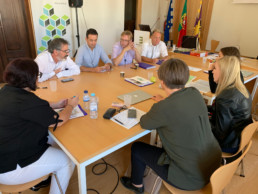
Voices
NMU_33
NMU_34
NMU_35
Network Members
Educational Innovation
Network Key Community
Members
Viladecans’ 360º approach to education underpins the idea of an Educational Innovation Network that involves different public and private representatives in a city-wide project. Anybody educates, anywhere at any time. It is understood that learning happens within and out of schools’ walls, and also physically and, increasingly, from and with virtual digital tools.
This education conception makes everybody co-responsible in the teaching-learning process. Bridges between potentially education agents, formal and non-formal, promote collaborative efforts and have a multiplying impact.
With this in view, all ON BOARD partners engaged members from different stakeholders’ groups to participate in the international gatherings, their local planning meetings and in pilot innovative projects.
Teachers and headmasters were obviously the first ones, but other followed: local businesses and the university, entities of all kinds, families, the students themselves… they turned to have a high potential and interest in connecting with each other to improve students’ interest, skills and capacities from a “real world” standpoint and beyond the formal curricula.
Local business are also
educating agents
In the holistic 360º vision of education, private and public agents contribute to improve the learning experience and the education success of today’s young people -as well as tomorrow’s community leaders. Some skills and competences such as critical thinking, problem solving, creativity, communication, collaboration… are not explicitly addressed through the formal curricula in schools. Still, they are key to adapt to today’s trends in work and rapidly changing environments in life.
At the ON BOARD Network meeting in Albergaria, project partners put the focus on the private sector, mainly, local companies, and how they can help the local education system advance quality and meaningful education and skills that are suitable for the local labour market and job needs. Tech and innovation, start-ups, local commerce, social enterprises… they can all benefit from a close cooperation with education centres (most commonly secondary and vocational) and provide their own views on what is required in terms of skills and capacities in different economic sectors.
Putting together teachers and local business representatives for collaborative projects can increase the chances for closing the gap between the school learning and the skills required. Project initiatives such as mentoring students, guiding session on careers and job opportunities, testing technological devices in the classroom, or hosting teachers for a period are but some of the proposals that ON BOARD cities shared at the meeting in Albergaria.
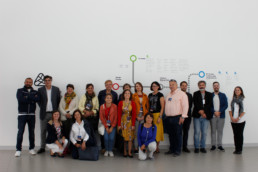
Voices
NMB_31
NMB_32
NO VALE Network Members
Educational Innovation
Network Key Community
Members
Viladecans’ 360º approach to education underpins the idea of an Educational Innovation Network that involves different public and private representatives in a city-wide project. Anybody educates, anywhere at any time. It is understood that learning happens within and out of schools’ walls, and also physically and, increasingly, from and with virtual digital tools.
This education conception makes everybody co-responsible in the teaching-learning process. Bridges between potentially education agents, formal and non-formal, promote collaborative efforts and have a multiplying impact.
With this in view, all ON BOARD partners engaged members from different stakeholders’ groups to participate in the international gatherings, their local planning meetings and in pilot innovative projects.
Teachers and headmasters were obviously the first ones, but other followed: local businesses and the university, entities of all kinds, families, the students themselves… they turned to have a high potential and interest in connecting with each other to improve students’ interest, skills and capacities from a “real world” standpoint and beyond the formal curricula.
Students empowerment & families
engagement for educational
success
Families
In Viladecans’ schools, parents of the students participate in aspects and decisions of daily school life, for example, the catering service for the school canteen or the after-school activities that take place in the centre, such as sports and leisure. Teachers are used to organise celebrations together with parents and students. This has proved to create collaborative bonds that contribute to strengthening and prestige the centre and its teachers, and to develop a sense of pride and belonging.
Not all ON BOARD cities have the same integration and parental involvement in school life. For some ON BOARD cities teacher-family dialogue is very limited. Most ON BOARD Cities have Families’ Associations or Parents’ Councils, with a diverse capacity of decision and involvement in each city.
In the meeting the Poznan held, families’ representatives were invited to contribute their own insights on the interest and capacity to collaborate with the school.
Some highlights on the parent’s insights and further debate concluded that families see a special interest in expanding their role of supporting their own kids with homework and duties and bridge between the school and their work and life out of the school. They see themselves as active members offering their own knowledge, skills and contacts to enrich and support education and the community.
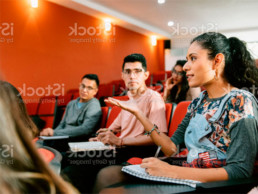

Students
At the basis of the students’ education success is motivation. All ON BOARD partners know that the student’s direct involvement in education decisions and projects spurs their interest and motivation. Before attending the meeting in Poznan, all cities surveyed students from the schools participating in the ON BOARD project to understand what exactly motivates them and what their expectations are.
Interestingly, their ideas confirmed the conclusions already heard form experts. Students’ feedback showed that taking advantage of their digital, technological and social media skills contribute to heighten their interest. The use of image (videos, tick-tock…), arts (music, dance, theatre…) and other formats of learning and communicating clearly connect with their way of learning.
Exchanging with other schools in the city or elsewhere, was mentioned to contribute to make education more attractive. Finally, taking responsibility in organisations that address their own passions, for example music, arts, social and environmental concerns, is a good way to raise interest. In sum, overcoming the traditional styles of learning strictly form a book and participating in projects that connect them with real life.
As part of their Plan to improve their own Good Practice, the Lead Partner city of Viladecans wants to make students’ voices heard and empower young people so they can participate as members of the Educational Innovation Network.
Voices
Families
NM_51
NM_52
NM_53
NM_54
NM_55
Students
NMS_51
NMS_52
NMS_53
NMS_54
NMS_55
NMS_56
NMS_57
NMS_58
NMS_59
Families
NM_51
NM_52
NM_53
NM_54
NM_55
Students
NMS_51
NMS_52
NMS_53
NMS_54
NMS_55
NMS_56
NMS_57
NMS_58
NMS_59
Network Members
Educational Innovation
Network Key Community
Members
Viladecans’ 360º approach to education underpins the idea of an Educational Innovation Network that involves different public and private representatives in a city-wide project. Anybody educates, anywhere at any time. It is understood that learning happens within and out of schools’ walls, and also physically and, increasingly, from and with virtual digital tools.
This education conception makes everybody co-responsible in the teaching-learning process. Bridges between potentially education agents, formal and non-formal, promote collaborative efforts and have a multiplying impact.
With this in view, all ON BOARD partners engaged members from different stakeholders’ groups to participate in the international gatherings, their local planning meetings and in pilot innovative projects.
Teachers and headmasters were obviously the first ones, but other followed: local businesses and the university, entities of all kinds, families, the students themselves… they turned to have a high potential and interest in connecting with each other to improve students’ interest, skills and capacities from a “real world” standpoint and beyond the formal curricula.
Local Entities For
Wider Education
Opportunities
Research shows that a child 12 years old who has experienced enriched learning opportunities outside the school has 6,000 more hours of exposure to learning than another child without such opportunities. From a strictly academic perspective, 6,000 hours of learning is the equivalent to five years in the classroom, according to Expanded Schools‘ analysis of the learning gap.
A big and diverse group of stakeholders in the cities contribute to the children’s education in their non-school hours and play a fundamental role to enrich and broaden their experience, values and skills. They strengthen children’s personal abilities, communication skills and creativity, not always addressed in the school curricula. Such local organisations are of different profiles and sectors: youth and sports clubs, after-school learning or leisure organisations, environmental and cultural institutions -museum, arts, libraries…-, volunteer, civic and community organisations, training and skills-development on technology, dancing, robotics, chess, etc.
Besides skills development, they provide meeting places with a diversity of colleagues and mentors and promote the values of citizenship and co-responsibility creating personal bonds with the communities they live in. Very importantly, they contribute to socialise children in contexts different from their home environments. Including these local organisations in the Educational Innovation Network is highly relevant since they are key education agents in non-school environments and times.
At the visit in Tallinn, all ON BOARD partners met youth organisations and clubs, and visited science museums and tech centres that offered a good and diverse scope of collaboration between them and primary and secondary schools.
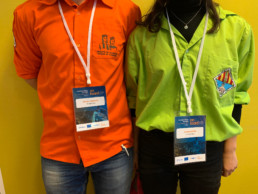
Voices
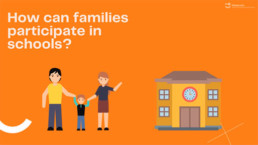
Viladecans
How can families participate in schools
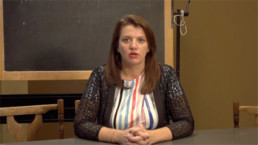
Tallinn
Good Practice - Families - Art Gymnasium
NM_41
NO VALE Network Members
Educational Innovation
Network Key Community
Members
Viladecans’ 360º approach to education underpins the idea of an Educational Innovation Network that involves different public and private representatives in a city-wide project. Anybody educates, anywhere at any time. It is understood that learning happens within and out of schools’ walls, and also physically and, increasingly, from and with virtual digital tools.
This education conception makes everybody co-responsible in the teaching-learning process. Bridges between potentially education agents, formal and non-formal, promote collaborative efforts and have a multiplying impact.
With this in view, all ON BOARD partners engaged members from different stakeholders’ groups to participate in the international gatherings, their local planning meetings and in pilot innovative projects.
Teachers and headmasters were obviously the first ones, but other followed: local businesses and the university, entities of all kinds, families, the students themselves… they turned to have a high potential and interest in connecting with each other to improve students’ interest, skills and capacities from a “real world” standpoint and beyond the formal curricula.
Business and Universities:
How they get
involved
Business
In the holistic 360º vision of education, private and public agents contribute to improve the learning experience and the education success of today’s young people -as well as tomorrow’s community leaders. Some skills and competences such as critical thinking, problem solving, creativity, communication, collaboration… are not explicitly addressed through the formal curricula in schools. Still, they are key to adapt to today’s trends in work and rapidly changing environments in life.
At the ON BOARD Network meeting in Albergaria, project partners put the focus on the private sector, mainly, local companies, and how they can help the local education system advance quality and meaningful education and skills that are suitable for the local labour market and job needs. Tech and innovation, start-ups, local commerce, social enterprises… they can all benefit from a close cooperation with education centres (most commonly secondary and vocational) and provide their own views on what is required in terms of skills and capacities in different economic sectors.
Putting together teachers and local business representatives for collaborative projects can increase the chances for closing the gap between the school learning and the skills required. Project initiatives such as mentoring students, guiding session on careers and job opportunities, testing technological devices in the classroom, or hosting teachers for a period are but some of the proposals that ON BOARD cities shared at the meeting in Albergaria.


Universities
The benefits of joint collaboration between the cities and the Universities placed in their territories are multiple and well known. Yet, it is not so common to see how primary and secondary education centres can benefit from research and collaboration projects with the Universities and other Higher Education and research institutions.
Viladecans, with the Smart Classroom Project, Halmstad, with the Smart Classroom Lab project, Albergaria with the University of Aveiro or Poznan and the University of Technology and the Super Computing Centre are good examples of ON BOARD cities benefitting from these joint projects.
The different roles that the Higher Education institutions can have to improve education in the city are diverse and were analysed in Albergaria. In agreement with the municipality, the University can provide teachers’ training and lifelong learning support; strategic planning and operational education plans hand in hand with the Education Departments; evaluation of education results in the schools through data gathering and monitoring and research on education topics and methods at the very same centres and with students.
Voices
Business
NMB_31
NMB_32
Universities
NMU_33
NMU_34
NMU_35
Business
NMB_31
NMB_32
Universities
NMU_33
NMU_34
NMU_35
Network Members
Educational Innovation
Network Key Community
Members
Viladecans’ 360º approach to education underpins the idea of an Educational Innovation Network that involves different public and private representatives in a city-wide project. Anybody educates, anywhere at any time. It is understood that learning happens within and out of schools’ walls, and also physically and, increasingly, from and with virtual digital tools.
This education conception makes everybody co-responsible in the teaching-learning process. Bridges between potentially education agents, formal and non-formal, promote collaborative efforts and have a multiplying impact.
With this in view, all ON BOARD partners engaged members from different stakeholders’ groups to participate in the international gatherings, their local planning meetings and in pilot innovative projects.
Teachers and headmasters were obviously the first ones, but other followed: local businesses and the university, entities of all kinds, families, the students themselves… they turned to have a high potential and interest in connecting with each other to improve students’ interest, skills and capacities from a “real world” standpoint and beyond the formal curricula.
Headmasters and teachers
as educational
innovators
Education Innovation starts with the commitment of schools’ headmasters and teachers who become the first true innovators. In Halmstad ON BOARD Partners analysed the capacities and challenges for primary and secondary schools’ teachers to innovate in their respective education systems. Teachers from the different partner cities were invited to an open dialogue to share their potential to innovate and the challenges they encounter.
In Halmstad all participants learnt about the Professional Learning Communities, the Halmstad project based on peer and co-teaching and practice oriented learning for teachers. A key learning point from the visit to the Swedish partners was that teachers need time to reflect, test, make mistakes and correct their teaching practice, with the support from the institutions and preventing extra workload.
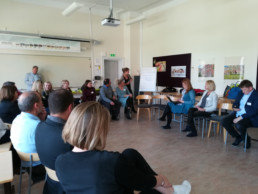
Voices

Viladecans
How can families participate in schools

Tallinn
Good Practice - Families - Art Gymnasium
NM_21
NM_22
NM_23
NM_24
Network Members
Educational Innovation
Network Key Community
Members
Viladecans’ 360º approach to education underpins the idea of an Educational Innovation Network that involves different public and private representatives in a city-wide project. Anybody educates, anywhere at any time. It is understood that learning happens within and out of schools’ walls, and also physically and, increasingly, from and with virtual digital tools.
This education conception makes everybody co-responsible in the teaching-learning process. Bridges between potentially education agents, formal and non-formal, promote collaborative efforts and have a multiplying impact.
With this in view, all ON BOARD partners engaged members from different stakeholders’ groups to participate in the international gatherings, their local planning meetings and in pilot innovative projects.
Teachers and headmasters were obviously the first ones, but other followed: local businesses and the university, entities of all kinds, families, the students themselves… they turned to have a high potential and interest in connecting with each other to improve students’ interest, skills and capacities from a “real world” standpoint and beyond the formal curricula.
Local
Authorities
One of the key lessons from the ON BOARD transfer experience is that the -too often- limited competences on education in the municipal level is not an obstacle for leading bold and innovative policies in the city.
Indeed, curricula, pupils’ ratios, and territorial organisation is usually decided from the higher regional and national levels. However, ON BOARD partners, have proven that the leading role of the City Government in the development of the Educational Innovation Network and education policies helps formulate strategies that can have a very high impact in educational improvement and success in the city.
Local authorities who want to place education high on the policy agenda may want to ensure they can build effective links between the Education Department and other municipal departments and agents. For example, it is of major relevance that the Education Department, the Youth Department and the Economic and Entrepreneurship Services closely work together to ensure the match between the job offer of local companies, and the skills required, in particular in STEM-related professions that are constantly evolving.
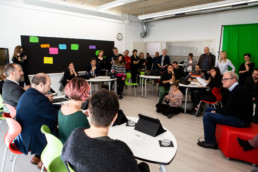
Voices

Viladecans
How can families participate in schools

Tallinn
Good Practice - Families - Art Gymnasium
Viladecans
How can families participate in schools
Tallinn
Good Practice - Families - Art Gymnasium

